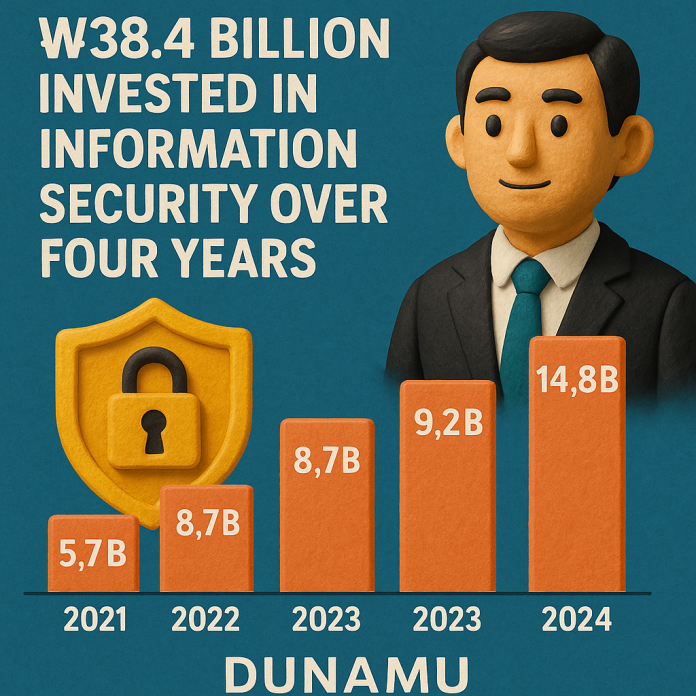
Dunamu, operator of South Korea’s largest cryptocurrency exchange Upbit, has disclosed that it invested a total of ₩38.4 billion (approx. $28 million) in information security between 2021 and 2024, reinforcing its commitment to a security-first management strategy.
According to its recently published information security disclosure, Dunamu steadily increased its annual security spending over the past four years:
-
₩5.7 billion in 2021
-
₩8.7 billion in 2022
-
₩9.2 billion in 2023
-
₩14.8 billion in 2024
The 2024 investment alone accounted for 9.6% of the company’s total IT investment of ₩154.3 billion, significantly surpassing the 6.1% average among companies that publicly disclose their security expenditures.
In addition to budget expansion, Dunamu also tripled the size of its dedicated cybersecurity workforce, growing from 9.9 personnel in 2021 to 33.6 in 2024. The increase reflects the company’s efforts to enhance both its internal infrastructure and its ability to respond to external threats.
This commitment has earned Dunamu high-level recognition. In 2023, the company was named an “Outstanding Organization for Information Security Disclosure” by the Ministry of Science and ICT and received a ministerial commendation — a rare achievement in Korea’s digital asset industry and one that significantly boosts its public trust.
“We view cybersecurity not just as risk mitigation, but as a critical driver of customer trust and corporate competitiveness,” said Jeong Jae-yong, Dunamu’s Chief Information Security Officer (CISO). “We will continue to expand proactive security measures through advanced technologies and skilled talent.”
Dunamu’s investment in security sends a strong signal across the digital asset industry, where the rising volume of cyberattacks has made robust protection a top priority. The company’s actions reflect a philosophy that security is not an afterthought, but the foundation of sustainable growth.
Looking ahead, Dunamu plans to incorporate AI-driven automation and advanced cloud security solutions to build a next-generation defense system — shifting from a reactive approach to a proactive, adaptive security architecture.






